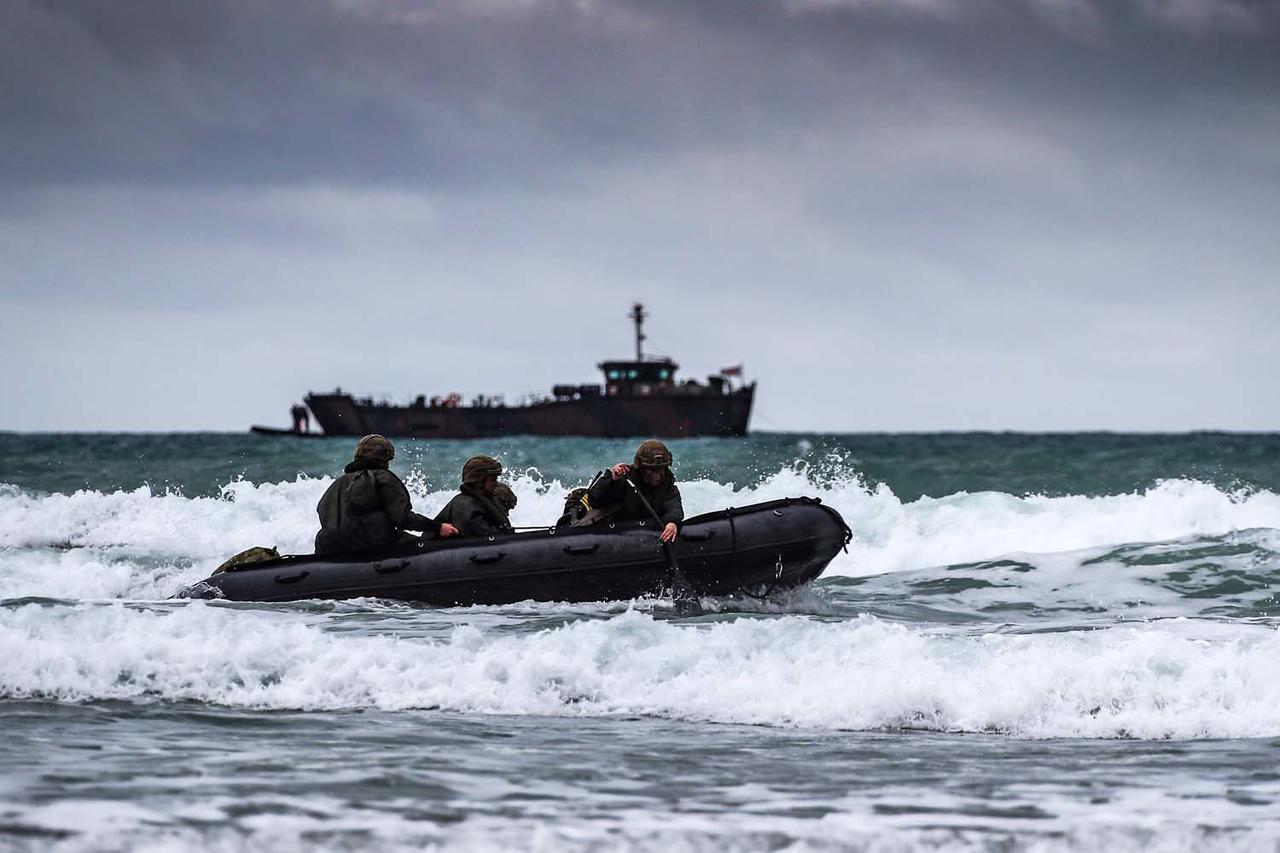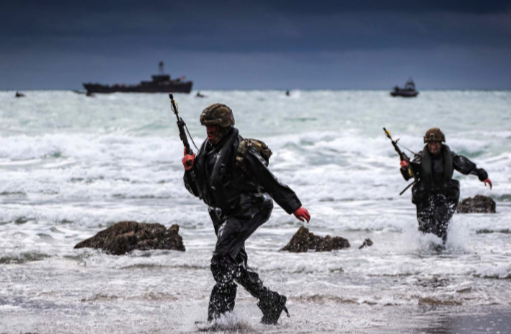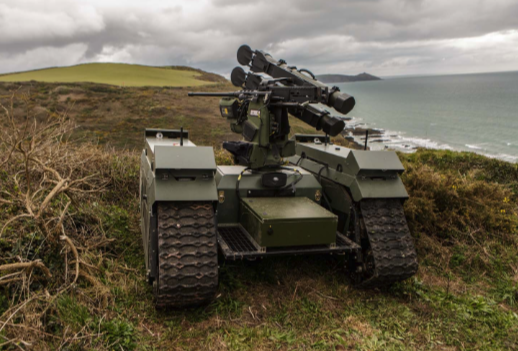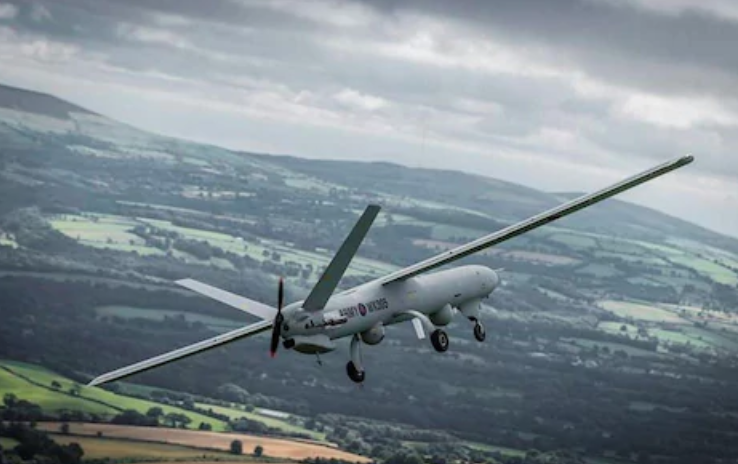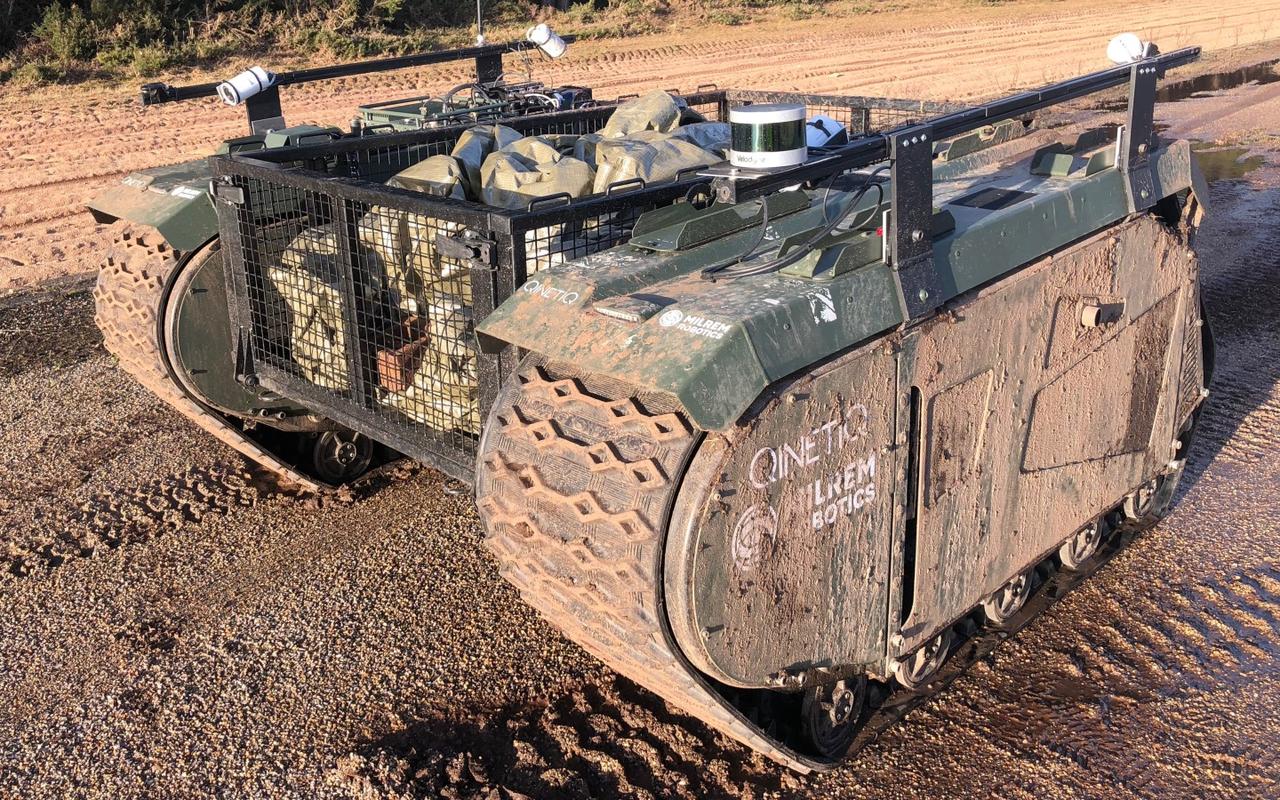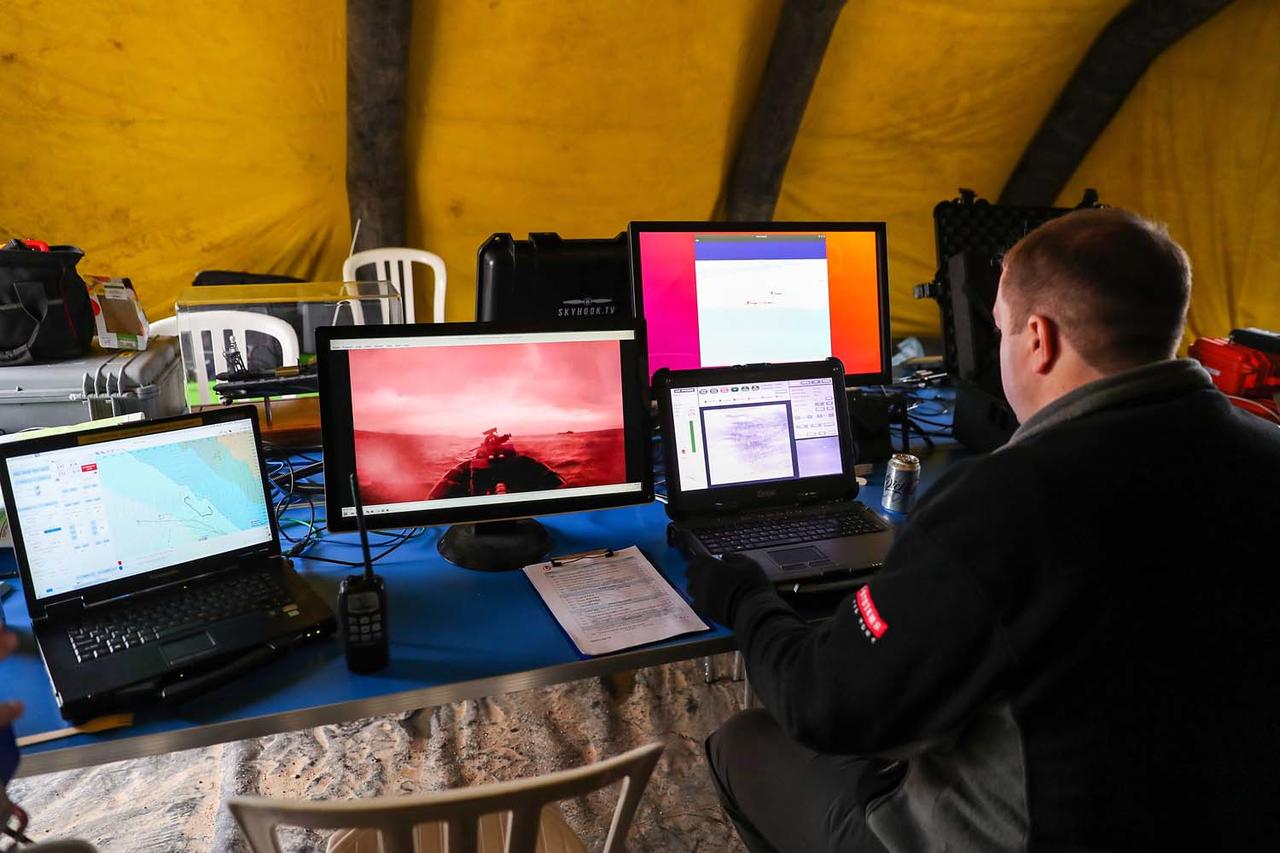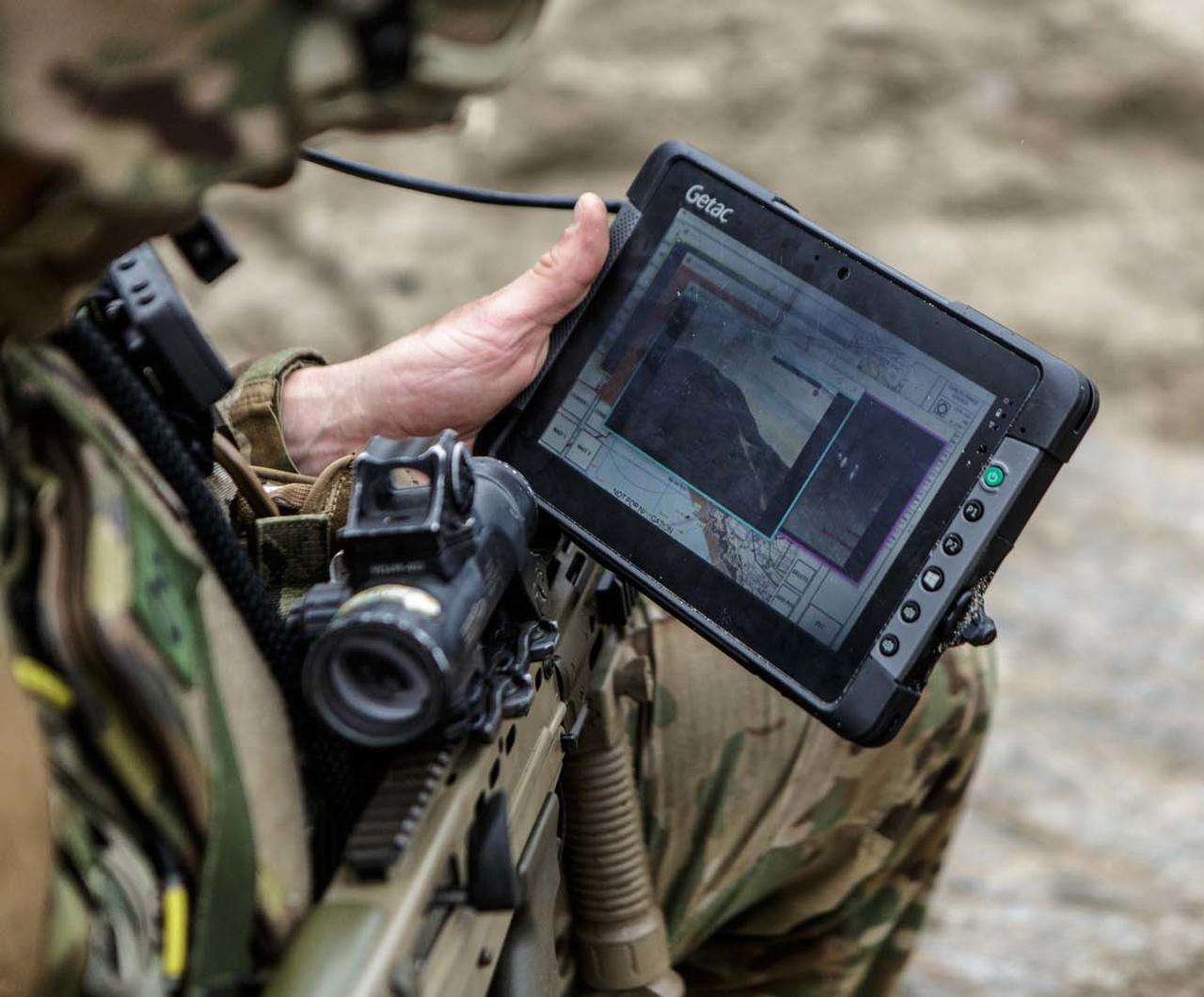Royal Marines conducted a “ground-breaking” exercise simulating an amphibious assault of a beach supported by unmanned vehicles for the first time, reported the Royal Navy newspaper.
Alpha Company of 40 special forces carried out ‘Exercise Commando Warrior’ alongside 1 Assault Group Royal Marines (1AGRM) at Tregantle Beach, in Cornwall, a county on England’s rugged southwestern tip.
The amphibious assault began late last month with marines in special forces vessels transported to the beach while being supported by unmanned boats with machine guns searching for enemy forces on land and at sea, using advanced cameras and sensors.
In the sky, small to medium-sized unmanned aerial vehicles patrolled the skies, and two unmanned ground vehicles provided direct and indirect fire support to landing troops.
The war exercise successfully achieved connecting all of these unmanned systems to central commanders who will then use data collected from the exercise to influence their future tactical decision-making.
With autonomous vehicles on three domains (air, land, and sea) protecting marines from enemy forces, the troops successfully stormed the beach, climbed the cliffs, eliminated enemy forces, and retreated to the shore.
Royal Marines were the first ever forces to use autonomous vehicles in three domains simultaneously while simulating a beach assault.
The two unmanned ground vehicles were designed and produced by QinetiQ, a British multinational defense robotics company and a supplier of robots to the Royal Marines.
Corporal Scott Shaw was one of the marines participating in the beach assault exercise.
Shaw said: “This is very early steps in the capacity of the Future Commando Force and reinventing ourselves back to the original definition of what Commandos are.”
“It is about reinventing the force with new technology that’s available,” he added.
Corporal Ashley Hill agreed with Shaw — indicating that “Trialling this new kit, and new formations, is about pushing us away from just being an infantry force that gets off the boats and moving us back towards our Commando roots.”
“There is a space to be filled in defense and we are trying to fill it thanks to this new technology,” Shaw said.
All video from the unmanned systems were fed through a downlink to a central command and then relayed back to marines that had tablets.
Colonel Chris Haw, commanding officer of 1AGRM and Commando Warrior exercise director, said: “This is a really exciting start and although it is only the first step, it is a milestone in Future Commando Force and Littoral Strike development.”
The Royal Navy funded all unmanned systems used in the exercise in the 2018/19 financial year.
Haw said, “In future, we will be able to do things with more precision and less risk.”
Since the 20th century began, amphibious assaults onto beaches have been one of the most sophisticated military maneuvers. It seems that now, the Royal Marines are integrating autonomous systems on three domains to gain a tremendous edge against enemy forces in future conflicts.
via ZeroHedge News http://bit.ly/2GZ6yeX Tyler Durden
